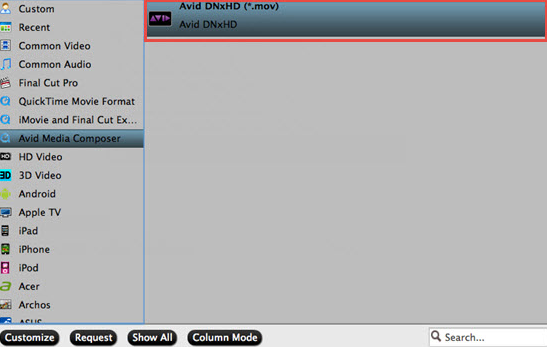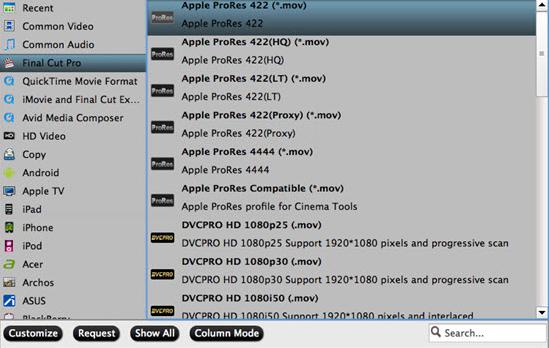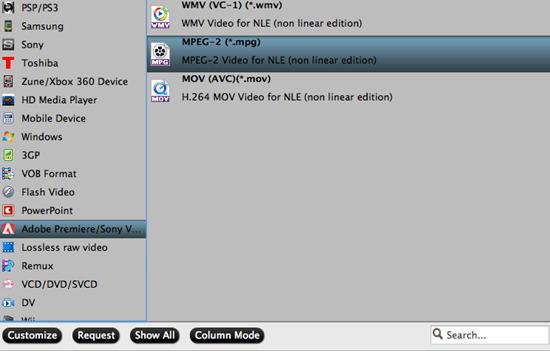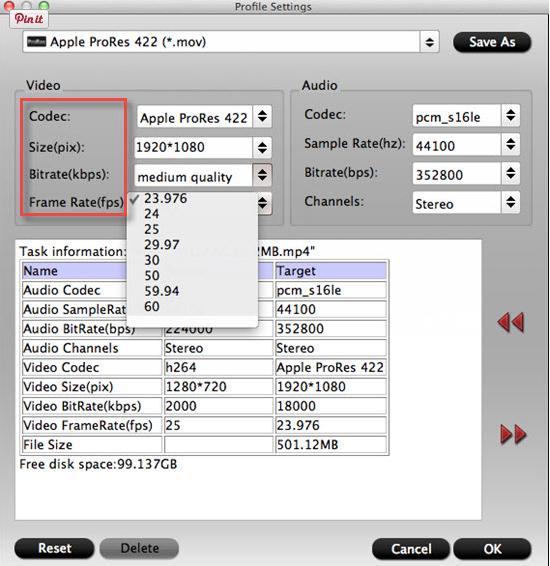Summary: In this article you will learn the basics of what 4K is and what you'll need to work with 4K footage.

4K: What you need to know?
The name 4K is used to describe a couple different, though very similar, standards. 4K is a video specification that literally just means '4,000'. It gets its name from the approximately 4,000 pixels of width of the footage. The form you're most likely encounter is Ultra High Definition or UHD, the new standard for 4K television. 4K video is poised to become the new benchmark for both recording and watching video and it brings a whole host of benefits, right away.
You've probably already noticed the jump from pre-digital 'standard definition' television up to 'HD' and 'Full HD' services that are now available on digital TV, online streaming and Blu-Ray discs. Compared to earlier standards, this HD footage is detailed, crisp and it even looks good when viewed on a large TV. But even the best quality, '1080p' HD footage is only 1920 pixels across. 4K is significantly more detailed, since it has twice as many pixels horizontally, and four times as many pixels in total.
Hot Search: Play 4K on TV | 4K to iMovie/FCE/FCP | Play 4K on Windows 10
Do I need a new computer?
Apple's Mac Pro desktop computer is more than enough to handle 4K editing, compare with an iMac/Mac Pro, or even with the new computer, to handle 4K workflows effectively, you would have to add-on a Thunderbolt expansion chassis with a RED Rocket card or RED Rocket X card, at least one or two powerful graphics cards such a the GTX 680, and a beefy Thunderbolt RAID like a Promise Pegasus 6-drive model.
That is to say, there is unfortunately no way you will be able to edit native 4K files at any of the higher quality, lower compression rates. The only way would be to transcode to a lighter codec, such for Adobe Premiere, the best compatible format or codec is MPEG-2, for Final Cut Pro, the best compatible format or codec is Apple ProRes(Apple ProRes Codec Types), for Avid, the best compatible format or codec is Avid DNxHD(*.mov). Well…yes, if you convert to those compatible original format and scale to 2K for editing.
The best solution to edit 4K video is to convert 4K files to those compatible original format for each editor. Pavtube Video Converter / Mac Version may help you a lot on this convert part, this is the top 4K video converter on the market, it can convert any 4K videos recorded by Red 4K camcorders, Sony 4K camcorders, Panasonic 4K camcorders, Canon 4K camcorders, JVC 4K camcorders, etc. to compatible original format for each editor.


Key Features of Pavtube Video Converter.
First free download and install Pavtube Video Converter on your Mac or Windows, and then launch it. Now just follow the step by step guide to make editing work more smoothly.
Step 1: Install and launch this program. Just drag and drop video files to the main interface of the program to add videos. If you have several video files that you want to convert in batch, just drag the folder where the sources are to the software.

Step 2: Click the “Format” drop-down menu to choose an output format that you prefer.
From "Format" drop-down lists, you can select Avid Media Composer preferable editing codec from "Avid Media Composer" > "Avid DNxHD(*.mov)" as the output format.

Click "Format" bar, from its drop-down options, move your mouse to "Final Cut Pro > Apple ProRes 422 (*.mov)" to select it as the output file format.

From the "Format" drop-down list, go to select "Adobe Premiere Pro/Sony V..." >"MPEG-2" as the most suitable output format for Adobe Premiere Pro.

Step 3: Before converting, you can edit the Canon footage to achieve a better overall effect. Simply highlight a video clip and click the “Edit” button beside it to enter the Video Edit window. You can then crop, trim, rotate videos, adjust Canon recordings effects, add text/image watermarks, etc. as you like.
Or you can open "Profile Settings" window to adjust the output video codec, size, bit rate, frame rate, audio codec, sample rate, bit rate and channels. Here i just give a Apple ProRes as the example, others for Avid and Premiere are nearly the same.

Step 4: Hit the convert button under the preview windows, the conversion will started immediately.
When the conversion is completed, run the editor and import the converted footage with more smoothly editing.
Read More:

4K: What you need to know?
The name 4K is used to describe a couple different, though very similar, standards. 4K is a video specification that literally just means '4,000'. It gets its name from the approximately 4,000 pixels of width of the footage. The form you're most likely encounter is Ultra High Definition or UHD, the new standard for 4K television. 4K video is poised to become the new benchmark for both recording and watching video and it brings a whole host of benefits, right away.
You've probably already noticed the jump from pre-digital 'standard definition' television up to 'HD' and 'Full HD' services that are now available on digital TV, online streaming and Blu-Ray discs. Compared to earlier standards, this HD footage is detailed, crisp and it even looks good when viewed on a large TV. But even the best quality, '1080p' HD footage is only 1920 pixels across. 4K is significantly more detailed, since it has twice as many pixels horizontally, and four times as many pixels in total.
Hot Search: Play 4K on TV | 4K to iMovie/FCE/FCP | Play 4K on Windows 10
Do I need a new computer?
Apple's Mac Pro desktop computer is more than enough to handle 4K editing, compare with an iMac/Mac Pro, or even with the new computer, to handle 4K workflows effectively, you would have to add-on a Thunderbolt expansion chassis with a RED Rocket card or RED Rocket X card, at least one or two powerful graphics cards such a the GTX 680, and a beefy Thunderbolt RAID like a Promise Pegasus 6-drive model.
That is to say, there is unfortunately no way you will be able to edit native 4K files at any of the higher quality, lower compression rates. The only way would be to transcode to a lighter codec, such for Adobe Premiere, the best compatible format or codec is MPEG-2, for Final Cut Pro, the best compatible format or codec is Apple ProRes(Apple ProRes Codec Types), for Avid, the best compatible format or codec is Avid DNxHD(*.mov). Well…yes, if you convert to those compatible original format and scale to 2K for editing.
The best solution to edit 4K video is to convert 4K files to those compatible original format for each editor. Pavtube Video Converter / Mac Version may help you a lot on this convert part, this is the top 4K video converter on the market, it can convert any 4K videos recorded by Red 4K camcorders, Sony 4K camcorders, Panasonic 4K camcorders, Canon 4K camcorders, JVC 4K camcorders, etc. to compatible original format for each editor.


Key Features of Pavtube Video Converter.
- Convert almost all 4K/HD/SD audio/video formats: All types of audios and videos (e.g. 4K/SD/HD/Tivo/DRV/Camcorder HD footages, etc) to almost any audio and video formats.
- hange default settings: You can change the parameters such as video size, bitrate, frame rate, and channels for your video file according to your need to get the best output effect.
- Batch conversion: Handle multiple videos and realize batch conversion to save your time and energy.
- Merging & splitting: Merge several video clips into one bigger file and splitting one video file into several clips according to the clip quantity, duration time and file size.
- Create new output format: Adjust profile parameters, rename and save it for future use.
- Supported OS: Windows XP/2003/Vista/Windows 7/Windows 8/Windows 8.1/Windows 10
- Supported OS: Mac OS X 10.11 El Capitan, Mac OS X 10.10 Yosemite, 10.9 Mavericks, 10.8 Mountain Lion, 10.7 Lion, 10.6 Snow Leopard, 10.5 Leopard
First free download and install Pavtube Video Converter on your Mac or Windows, and then launch it. Now just follow the step by step guide to make editing work more smoothly.
Step 1: Install and launch this program. Just drag and drop video files to the main interface of the program to add videos. If you have several video files that you want to convert in batch, just drag the folder where the sources are to the software.

Step 2: Click the “Format” drop-down menu to choose an output format that you prefer.
From "Format" drop-down lists, you can select Avid Media Composer preferable editing codec from "Avid Media Composer" > "Avid DNxHD(*.mov)" as the output format.

Click "Format" bar, from its drop-down options, move your mouse to "Final Cut Pro > Apple ProRes 422 (*.mov)" to select it as the output file format.

From the "Format" drop-down list, go to select "Adobe Premiere Pro/Sony V..." >"MPEG-2" as the most suitable output format for Adobe Premiere Pro.

Step 3: Before converting, you can edit the Canon footage to achieve a better overall effect. Simply highlight a video clip and click the “Edit” button beside it to enter the Video Edit window. You can then crop, trim, rotate videos, adjust Canon recordings effects, add text/image watermarks, etc. as you like.
Or you can open "Profile Settings" window to adjust the output video codec, size, bit rate, frame rate, audio codec, sample rate, bit rate and channels. Here i just give a Apple ProRes as the example, others for Avid and Premiere are nearly the same.

Step 4: Hit the convert button under the preview windows, the conversion will started immediately.
When the conversion is completed, run the editor and import the converted footage with more smoothly editing.
Read More:
- Compress 4K Video to 1080p
- Edit 4K in FCP X Workflow
- Import 4K to Avid Media Composer
- Watch 4K Videos on Apple TV 4/3/2/1
- Upload 4K videos to YouTube/Vimeo/Facebook/Google+